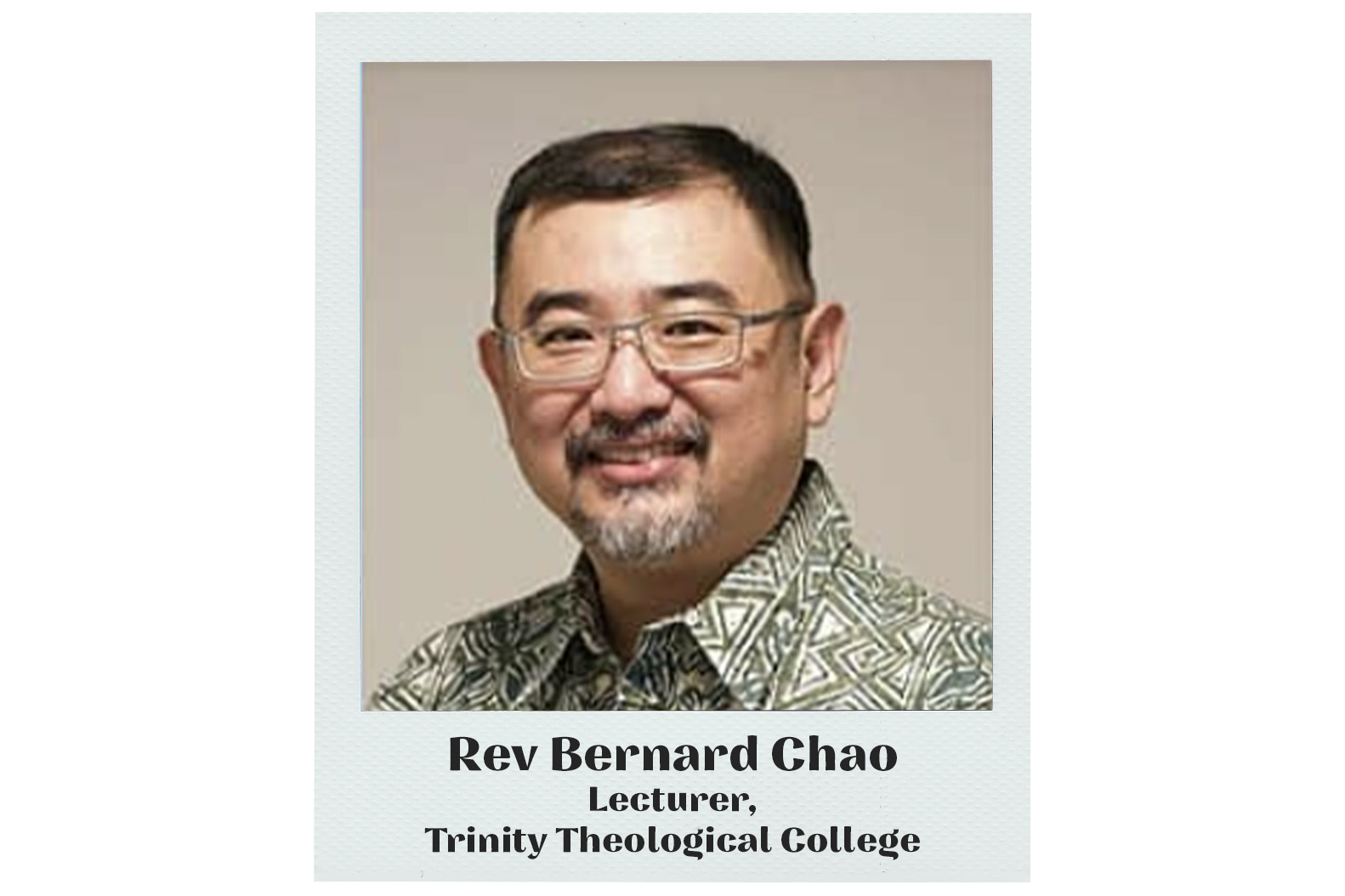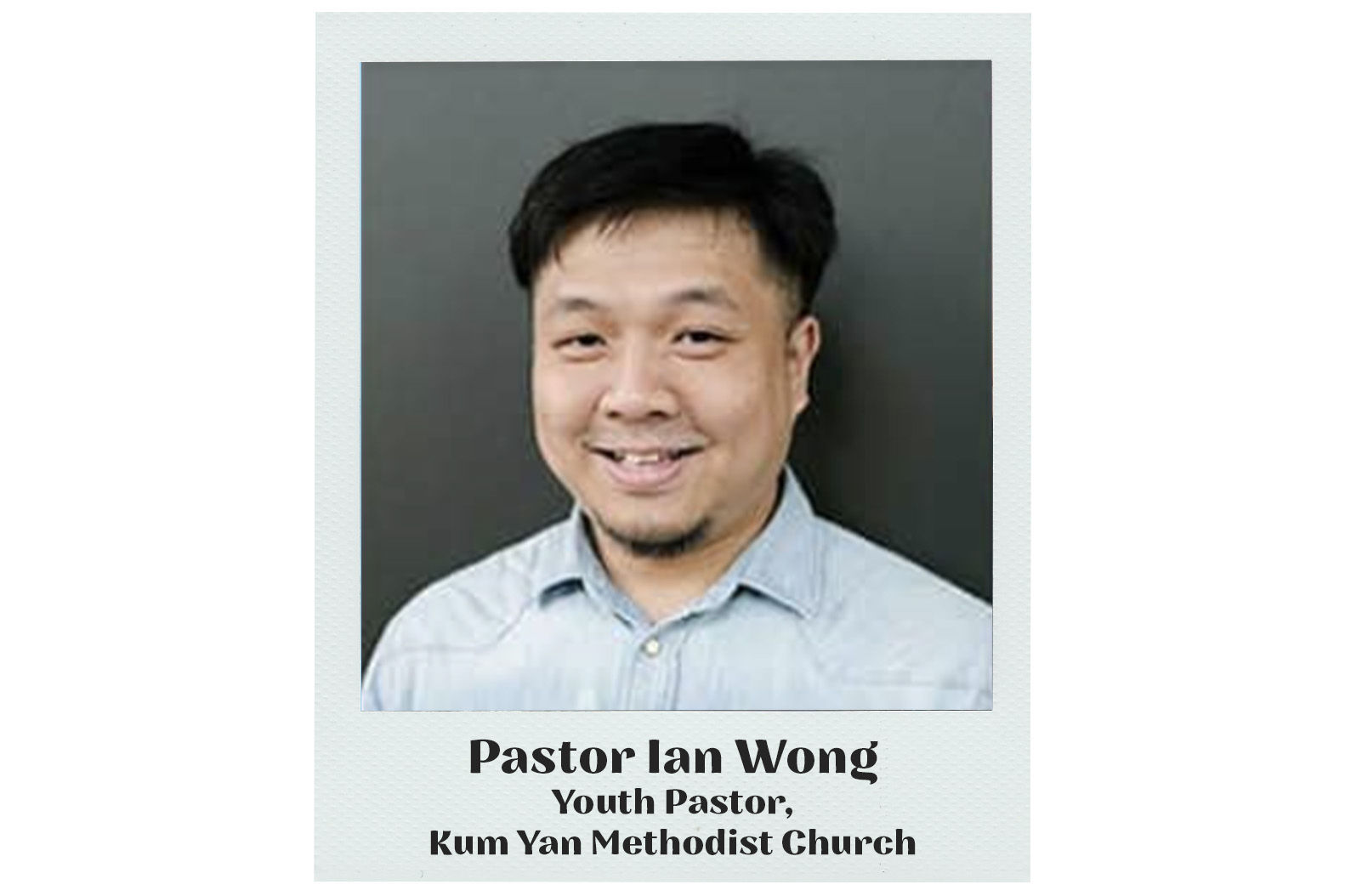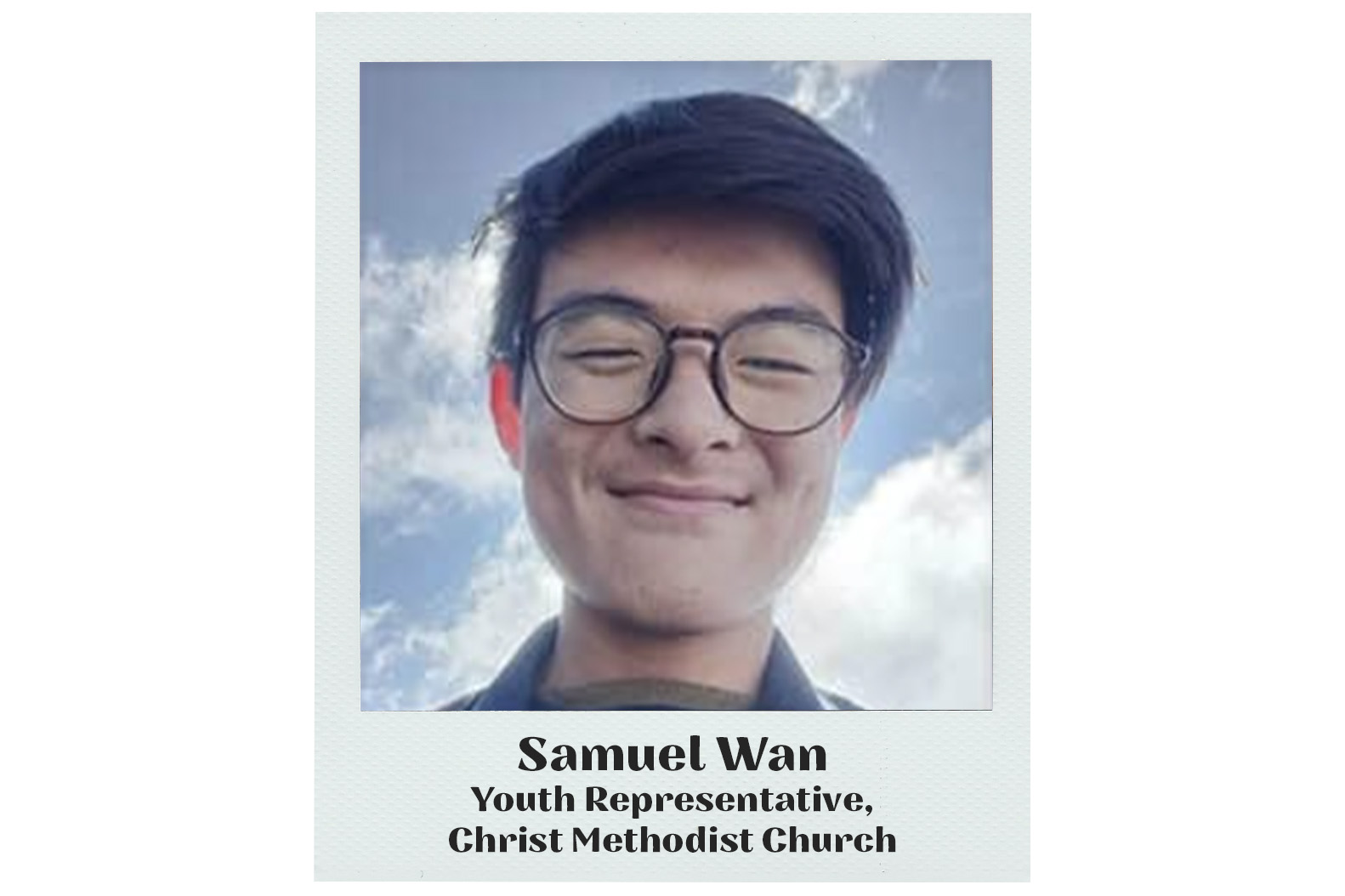“COVID-19 has been like a temperature-taking for the church,” Pastor Ian Wong of Kum Yan Methodist Church, opined.
Referencing Singapore’s safe-distancing measures, he went on to say “If you’re healthy in [groups of] 5, you’re probably healthy in 500.”
On Thursday afternoon (December 10), youths and youth leaders gathered online for a rich discussion at the Methodist youth conference, One Heart, Soul, Mind and Strength (1HSMS).
It is not surprising that the conversation was undergirded by the looming presence of the ongoing pandemic. Yet it also underscored how the virus has helpfully surfaced deeper issues that have already long been present in our youth ministries.
Alongside three panelists – comprising Pastor Ian Wong (Youth Pastor), Bernice Toh (Youth Leader) and Samuel Wan (Youth) – Rev Bernard Chao facilitated an honest and lively dialogue with the attendees about pressing issues faced by youths across Methodist churches.
Rev Bernard’s genuineness in engaging the youths in attendance was palpable as he repeatedly emphasised from the get-go: “We want to make sure young people are heard. We want to hear you.”
HAVE WE PRIORITISED PROGRAMMES OVER PEOPLE?
Kicking off the interactive session, Rev Bernard asked whether youth ministries have put programmes ahead of relationships.
“As ministries prioritise programmes over relationships, people get lost along the way,” he noted.
Citing a 2016 study by the Evangelical Fellowship of Singapore and One Hope, Rev Bernard pointed out that youth ministries are strong in organising large-scale events and programmes, but this strength could also be a weakness.

In response, one youth worker agreed that, over the years, programmes in the church seemed to have removed the need for young people to learn how to be intentional with connecting to and loving one another – especially those from different backgrounds and with different personalities.
“Most times, meeting up with youths, or even the face-to-face connections, is left to a youth worker or youth leader, or somebody whom the church deems to be the right person, the right personality, the friendly extrovert, who seems to be able to get the conversation going,” he observed.
But what happens when we lose our youth camps, workshops and services?
COVID-19 has ripped away church structures, revealing starkly what the fundamental building blocks of our youth ministries are. Do we depend on our events and programmes to keep our youths coming? Or is it real authentic relationships and community that drive our growth?
The events of this year have left us with no doubt that it is the latter that must function as the bedrock of our ministries.
Echoing this sentiment, Pastor Ian said: “We’re in a season of spending relational capital. If you’ve been storing up and saving relational capital, you’ll have a lot to spend in COVID-19, and you’re in a good place.
“If you have very little relational capital and you need to build a relationship on Zoom, it’s hard. It’s easy to maintain and grow something if you have gone a certain distance.”
That’s not to say that programmes are bad in themselves.

“The events are important – and if there weren’t youth ministry events and programmes, I believe many of us here wouldn’t even have come to the church,” Pastor Ian remarked.
Nonetheless, he shared 5 steps to describe the journey he hopes to see in a person coming into youth ministry.
- Fun: The excitement that someone feels when they first get drawn in.
- Friendship: Making genuine connections with people within the church.
- Feeding: Growing deeper roots by being taught and learning something.
- Fruitfulness: Where the learning produces fruit. A season of growth where you see a change in the person’s character.
- Faith: The place of surrender. You become a disciple of Jesus Christ when He tells you to do something and you actually do it.
His point was that while there is a place for programmes, it’s hard for anyone to get all the way to step 5 without some genuine personal relationships.
Urging ministries to go deeper to identify the core of the programme, he said: “No matter how you wrap it, what matters is the inside… But when you go into the packaging, what do you find? If you only find the event, then you are sorely lacking.”
Pastor Ian highlighted another challenge faced by youth ministries, explaining that programmes come about because of a lack of leaders.
When you only have a handful of leaders, the tendency is to let them drive programmes so that they can reach a wider group of people and have more impact.
“In churches, there seems to be an expiry date for a youth leader,” he said.
“And the reason transient youth ministry leaders exist is because we’re emphasising relevance that is dependent on the stage of life. So if you’re in JC, army or poly, then you can’t really minister to a secondary school kid because your life stage has moved on.”
Instead, he suggested that healthy youth ministries should be looking to develop leaders who are not leading out of relevance based on their life stage, but leading based on biblical values that are espoused and clear, and lived out in community.
In that way, the longevity of a youth leader doesn’t come from “how hip you are”.

In an unexpected way, a bright spot in this pandemic is how it has given much opportunity for church ministries to be even more deeply rooted in relationships.
Samuel Wan, a youth attending Christ Methodist Church, shared: “For me and my friends, the Circuit Breaker was one of the best things that have happened to us. We had almost nightly Zoom calls to worship and pray.”
These frequent sessions by Samuel and his friends eventually grew to become the School Houses of Prayer, a weekly meeting to connect prayer groups across different schools to pray, worship and fellowship together online.
Recollecting his experiences this year, Samuel stated: “It’s not just about the growth of numbers, but the building of strong friendships.”
Bernice Toh, a youth leader from Paya Lebar Methodist Church, shared her challenges in keeping up with her youths without the weekly face-to-face interactions in church.
However, this inspired their ministry to do things differently, such as coming up with creative online initiatives like worship music videos for youths to worship in their own homes as well as an online dialogue with a missions worker for the young people to hear and see what is going on in the field.
“If not for COVID-19, this would not have happened,” she admitted.

Lastly, Pastor Ian also voiced his excitement at how there are now many more opportunities to serve because of how decentralised church has become.
“As long as you have a dining table and you can buy some food from downstairs, you can host five people and have faith conversations. Last time, everything was dependent on the cell leader. Now everybody is a cell leader.”
Sharing about an initiative started by his church, he shared how people have been split into smaller groups, so that every other month, there’s someone else’s house you can go to for Table for 5.
Cutting across cell groups and age groups, this has had the benefit of building inter-generational connections within the church.
WHO ARE WE MISSING FROM OUR CHURCHES?
Interestingly, the issue of the widening generational gap was also covered in the latter half of the discussion, which focused on the question: Who are we missing from our churches?
Is our exclusiveness, seen in our perspectives towards and interactions with the older generation (or lack thereof), symptomatic of a deeper issue within our youth ministries?
In a video showed at the conference, young people across Methodist churches who were interviewed had a vision of a Church that looks outward when asked what they wanted the Church to be like in 2050.
“Are we like a club, or are we engaged and connected to our communities?”
Yet through a sobering sharing of stories from panelists and participants that followed, it seemed that our ministries may have been sending an unconscious signal that they only exist for a certain type of young people, perhaps from a particular school, ethnicity, economic group or even family situation.
Those who do not fall within the typical categories often do not stay in our churches for long.
In light of this stark discrepancy, Rev Bernard challenged the participants to each take a good look at our own youth ministries and consider the following: “Who is under-represented? Who is not even there? Are we like a club, or are we engaged and connected to our communities?”
Finally, Pastor Ian urged everyone to consider the reasons why youths choose to stay or leave churches, and how these are often relational in nature.
He also reminded participants of the main motivation in wanting to keep our youths in church: “We don’t just want them to stay; we want them to change.”
WHAT WILL YOU DO ABOUT IT?
As the dialogue approached a close, Rev Bernard invited the attendees to ponder their personal ownership of the kingdom and the church.
“Each of us at some point must say [the problem we see] is not somebody else’s problem. I’m the somebody. I’m the one who can do something about it.”
Rev Bernard pointedly asked the crowd: “What are you waiting for? What will you do about it?”
After a minute of silence, an attendee courageously unmuted himself to share: “My own personal takeaway from today, is the question that Pastor Ian mentioned – when Jesus comes [back] and asks ‘what have you done for my kingdom?’”
As daunting as it might feel to step up and own the problems we see in our ministries, let us be encouraged that God can use any willing heart.
Will you be willing to take that first step to be the answer to the problem?
The 1HSMS (One Heart, Soul, Mind and Strength) Conference will wrap up with a worship night today on December 11 (Friday) at Kum Yan Methodist Church. Here’s how you can sign up. Can’t join in person? You can still catch up via the livestream!
Source for main photo: Truthmin (TRAC) Youth Ministries’ Facebook page
- What are some of your current biggest concerns for your church/youth ministry?
- How has COVID-19 impacted your church/youth ministry? What has this revealed about the health of your church community?
- How might God be calling you to take a first step in being the answer to your concerns for your church/youth ministry?









